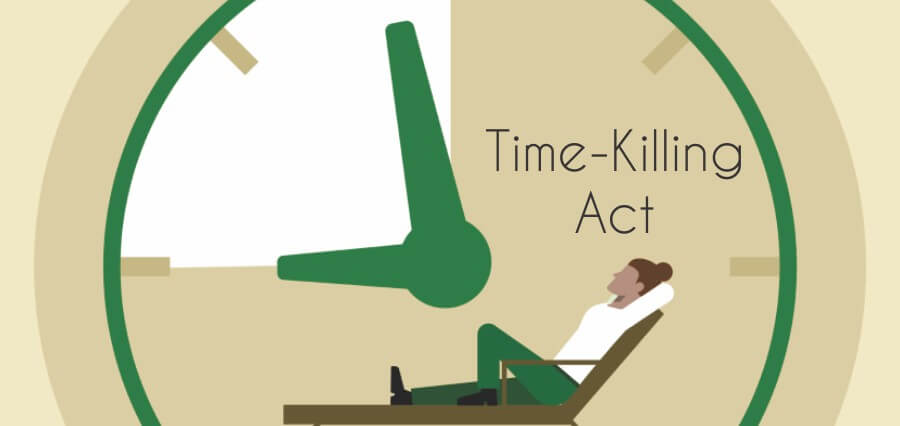“My advice is to never do tomorrow what you can do today. Procrastination is the thief of time.”- Charles Dickens, Writer
Procrastination is a common problem that is found in humans all around the world. Many people delay their activities till the last moment, but procrastinators habitually avoid difficult task and consciously look for distractions. Distraction not only does affect the productivity of work but it also has an impact on human’s self- esteem. The more a person is focused on his work dedicatedly and continuously, the more will be his chances to get the desired end results which ultimately boost his confidence level and self-esteem.
The problem of procrastination has been there since ages and will remain so as it is more like a habit that has linkage with human behavior. To understand this behavior is thus important to further find solution to eliminate or avoid this ‘time-killing’ act.
Why do people Procrastinate?
Ancient Greek philosophers like Socrates and Aristotle had coined a word in the past to describe such type of behavior: Akrasia. It is a condition when a person does one thing even knowing that he has to do something else. Loosely translated, one can say that Akrasia is procrastination or a state in which a person lacks self-control. But the real question is: what is going on in the brain that causes humans to avoid the things that they know they should be doing?
Behavioral psychology research has discovered a phenomenon generally called as “time-inconsistency” which explains why despite having good intentions humans delay their works. This research found that humans prefer to do that work which provides immediate rewards compared to future ones. The psychology behind this is humans are lazy by nature and they generally want immediate gratification with less effort as compared to much better results in longer duration as it requires more efforts and patience. Most people generally don’t have the patience to wait for a certain period of time to see better results since it requires continuous effort and results only get visible after a certain amount of time. So, basically the brain understands the long-term benefits of a task, but it values immediate gratification more when it comes to the present moment (today).
Techniques to Stop Procrastination
Temptation Bundling: If a person finds a way to make the benefits of long-term choices more immediate, then it becomes much easier to avoid procrastination. One of the best strategies to bring future rewards into present moment is temptation bundling. This is a concept that has been popularized by Katy Milkman through a research performed at The University of Pennsylvania. In simpler words, this strategy suggests that a person needs to bundle a behavior that is good for him in the long-run with a behavior that make him feels good in the short-run.
Pay the Price for Missing the Deadline: Human hates penalties be it of any form, monetary or related to prestige. Every human values their self-respect and self-esteem more than anything else. And this physiological fear could be utilized with a good intention to avoid procrastination. If a person is really committed towards its goals, then that person also should make some form of penalty to be paid when missing on the deadline related to performing some task, by doing so in a sincere fashion one can avoid procrastination.
Breaking a Bigger task into Smaller One: Humans find larger task cumbersome and boring and thus most of the humans either don’t even try to start such a task or if someone even starts it then most of them don’t reach the finishing line. Since that large task requires continuous effort over longer period of time along with persistent hard-work. But if humans start looking at the task into another way then larger tasks will also get executed with full enthusiasm. The strategy is simple: break larger goals into smaller one; or even break a goal which you know that require one month to complete into a 30 days plan. Make some daily smaller task for each day which leads towards those bigger goals.
Interestingly, humans can make that task even further simpler by dividing a single day task into many pieces. By doing this a person can execute each of the much smaller component with utmost dedication, concentration and enthusiasm and can reach to the finishing line in a much smoother fashion with a happier and positive outcome.
For example, consider the remarkable efficiency of the famous writer Anthony Trollope. Anthony published 47 novels, 18 non-fictional work, 12 short stories, 2 plays, and an assortment of articles and letters. How he accomplished this is an answer everyone wants to know.
Every day he set a target of writing 250 words per 15 minutes for many times but with a fixed time intervals between each session. This tactic allowed him to enjoy the feelings of satisfaction and success every 15 minutes and ultimately led him to complete a larger pool of his literary work.
Although, sometimes to achieve perfection also people do procrastinate, and delay their pending task for a little while. But most of the people delay their work since they find it difficult, boring and cumbersome, even knowing though its long term benefits on their lives. According to one prominent research, about 95% of persons procrastinate to some extent and thus affect the overall productivity of their work and life. To reduce or avoid procrastination thus these techniques proves to be really helpful.









